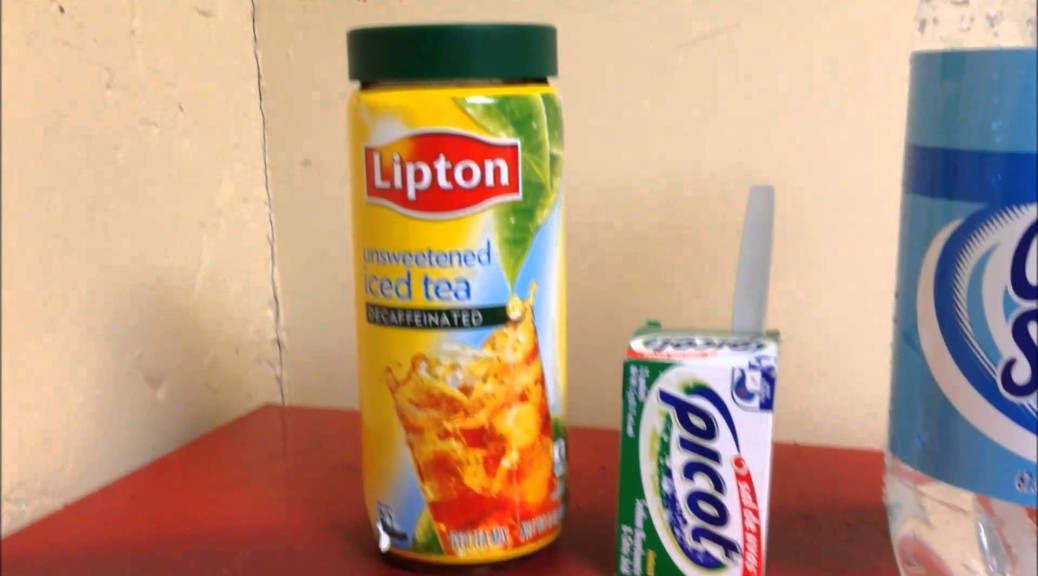The following is taken from a 1903 article in the Evening Star newspaper:
Drink on the stage often brings suffering to the actors, as in most cases a substitute for the genuine article is used. Who does not recall the scenes on the village green where the bustling innkeeper comes on with his little pitcher, ready to fill the mugs of the joyful villagers? From his wee pitcher he pours an endless stream of liquor without having to replenish the stock at the cask. And in the meantime the lads and lassies join in the inevitable drinking song, waving their cups about with no attempt to prevent the audience from seeing that all their inspiration comes from nothing more substantial than thin air. This sort of thing prevails in comic opera, but in more pretentious drama the illusion must be maintained.
In most theaters whisky is barred, but the red-nosed villain is allowed to partake of a disagreeable concoction composed of water and brown sugar. And where the play has a long run, the actor gets to looking forward to the drinking scene as one of the penalties of his profession.
When beer is the article demanded, the property man is sometimes allowed to bring in a bottle or “can” of the real article. But where a great number of persons are to drink, a makeshift is generally resorted to. The tops of the mugs are stuffed with loose cotton batting to simulate foam.
Champagne is represented by another unpleasant concoction, and tea and coffee are frequently merely imagined, for the actor can place the spout of the pot down into the cup, so that the audience is unable to tell whether a beverage is being poured out of not.
Stage fruits are usually made of cotton molded into the desired shapes, and then glazed and painted. In “Jim Bludso” a barrel apparently full of apples is introduced. The barrel is empty except for a single layer of cotton apples on the top, and the whole affair weighs only three of four pounds. Of course, where fruit is actually eaten on the stage the real article is cheap enough to be used.
Taken from The Evening Star (Washington, DC), February 28, 1903, page 25.

